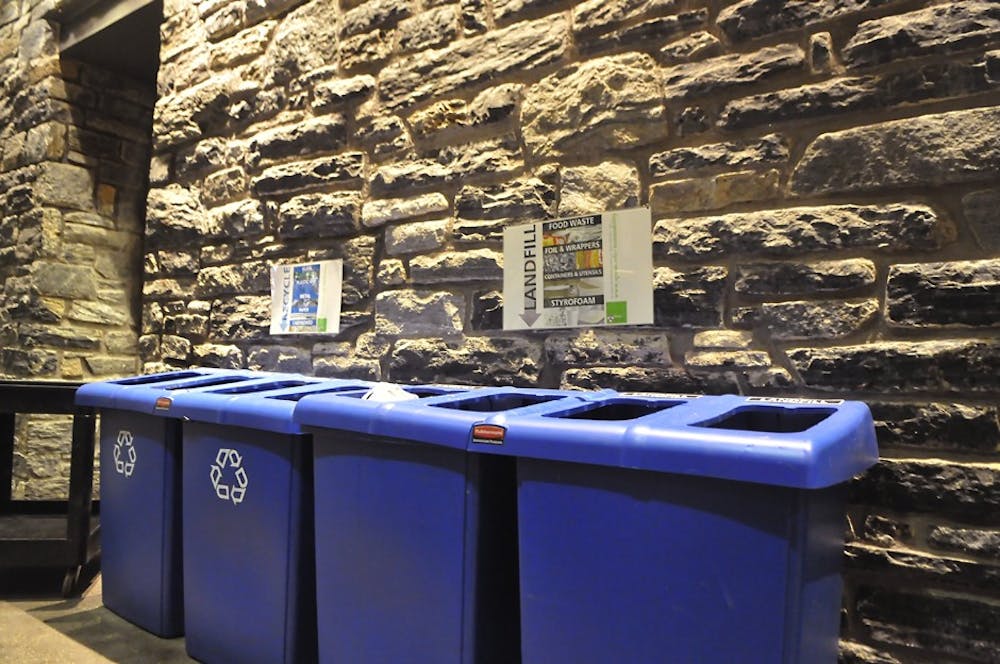Despite efforts to increase composting efforts at Penn, the practice was suspended on campus this month.
Instead, composting bins, such as those in Houston Market, are now labeled “landfill,” indicating a temporary change in the final destination of waste on Penn’s campus.
Composting — the recycling of biodegradable materials for soil fertilizer — will resume as soon as Bon Appetit is able to comply with new city regulations, sustainability director Laurie Cousart wrote in an e-mail.
In Jan. 2010, Penn Dining began to send food waste collection to the Wilmington Organic Recycling Center to be composted. This expanded to include the collection of post-consumer food in September.
“‘Compostable’ products are biodegradable, but with an added benefit: when they break down, they release valuable nutrients into the soil, aiding the growth of trees and plants,” Cousart wrote.
Despite the temporary suspension on campus, a small pilot composting project at Joe’s Cafe in Steinberg-Dietrich Hall will continue as a test case.
“We will use that location to test new signage, determine best practices, and gather feedback from Penn diners,” Environmental Sustainability Coordinator Dan Garofalo wrote in an e-mail.
College freshman and Eco-Rep Michelle Greenblatt noticed the new “landfill” signs immediately. She says she was “disappointed” to see that the dining facilities had stop composting.
Greenblatt said that the new signs may make some students more conscientious of their consumption. However, “the reality is that people don’t really care that much.”
Penn will return to composting at all dining locations after the containers and collection processes have been updated to meet the new regulations.
Meanwhile, “there has been no reduction [of] our recycling efforts either at Houston Market or in other campus buildings,” Cousart wrote.
“In fact, Penn’s recycling program continues to grow,” she added, citing the fact that Penn can now recycle plastic types numbered 1 through 7, indicated on the bottom of containers.
“Penn is recycling more now than ever, and, as a campus, we are making great strides toward our Climate Action Plan goal of a 40 percent recycling rate by 2014,” Garofalo added. “Our cumulative campus recycling rate since mid-summer for glass, plastic, metal, paper, and cardboard is at approximately 28 percent — up from 24 percent in 2010, and from15 percent in 2006.”



